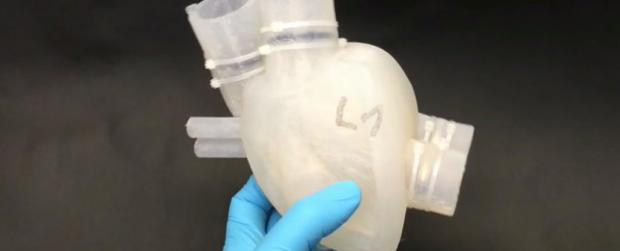
Breaking News
 Verizon to Slash 15 Percent of Its Workforce, About 15,000 Jobs
Verizon to Slash 15 Percent of Its Workforce, About 15,000 Jobs
 The SCARY SHIFT from SCARCITY to ABUNDANCE
The SCARY SHIFT from SCARCITY to ABUNDANCE
 Foreclosure surge signals housing market distress as costs spiral out of control
Foreclosure surge signals housing market distress as costs spiral out of control
 Nearly 1,000 flights canceled despite government reopening, disruptions expected for days
Nearly 1,000 flights canceled despite government reopening, disruptions expected for days
Top Tech News
 Blue Origin New Glenn 2 Next Launch and How Many Launches in 2026 and 2027
Blue Origin New Glenn 2 Next Launch and How Many Launches in 2026 and 2027
 China's thorium reactor aims to fuse power and parity
China's thorium reactor aims to fuse power and parity
 Ancient way to create penicillin, a medicine from ancient era
Ancient way to create penicillin, a medicine from ancient era
 Goodbye, Cavities? Scientists Just Found a Way to Regrow Tooth Enamel
Goodbye, Cavities? Scientists Just Found a Way to Regrow Tooth Enamel
 Scientists Say They've Figured Out How to Transcribe Your Thoughts From an MRI Scan
Scientists Say They've Figured Out How to Transcribe Your Thoughts From an MRI Scan
 SanDisk stuffed 1 TB of storage into the smallest Type-C thumb drive ever
SanDisk stuffed 1 TB of storage into the smallest Type-C thumb drive ever
 Calling Dr. Grok. Can AI Do Better than Your Primary Physician?
Calling Dr. Grok. Can AI Do Better than Your Primary Physician?
 HUGE 32kWh LiFePO4 DIY Battery w/ 628Ah Cells! 90 Minute Build
HUGE 32kWh LiFePO4 DIY Battery w/ 628Ah Cells! 90 Minute Build
 What Has Bitcoin Become 17 Years After Satoshi Nakamoto Published The Whitepaper?
What Has Bitcoin Become 17 Years After Satoshi Nakamoto Published The Whitepaper?
This 3D-Printed, Soft Artificial Heart Beats Just Like a Real One

Scientists have 3D-printed a soft, artificial heart made of silicone that beats almost like a human heart, putting us another step closer to replacing damaged human hearts without the need for a transplant.
With about 26 million people worldwide suffering from heart failure, and a global shortage of donors, being able to custom-make artificial hearts would be an invaluable solution to a perennial, long-term problem.
The team behind the artificial heart, from ETH Zurich in Switzerland, says its prototype heart can beat in a very natural way for about half an hour before the materials break down, and the researchers are working hard to improve their new invention.
"[Our] goal is to develop an artificial heart that is roughly the same size as the patient's own one and which imitates the human heart as closely as possible in form and function," says one of the team, Nicholas Cohrs.

 Unbanked In A Connected World
Unbanked In A Connected World

